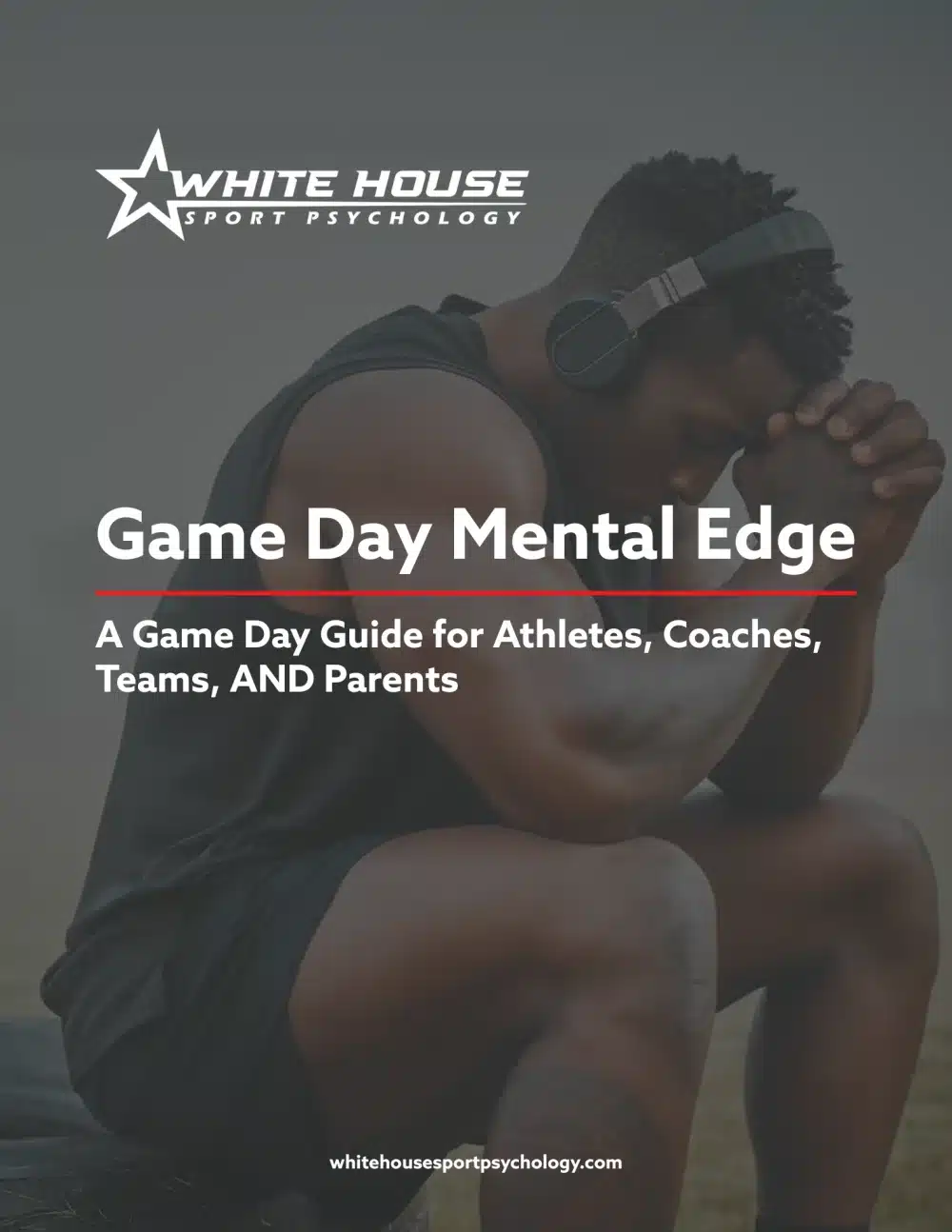At White House Sport Psychology, we know that having a strong mind is just as important as being physically fit, especially when it comes to sports. Whether chasing a personal record or competing on a big stage, your mindset plays a huge role in your success.
And now, the NCAA formally recognizes how crucial mental health is for student-athletes, rolling out new rules to ensure athletes get the support they need.
Below, we’ll explain what these new regulations mean for athletes, coaches, and teams. If you’re an athlete wanting to perform your best or a coach or athletic director looking to better support your players, understanding these changes is crucial.
The Growing Focus on Mental Health in Sports
Mental health in sports has finally started to get the attention it deserves, especially among student-athletes. Not long ago, athletes were often expected to “tough it out” and push through, no matter how they felt mentally. But things are changing, and it’s evident that mental health is just as important as physical health.
A lot of athletes have started opening up about their own struggles with anxiety, depression, and burnout. And when athletes struggle mentally, it doesn’t just affect how they feel—it also impacts their performance.
Take Simone Biles, for example. Her decision to step back during the Tokyo Olympics due to mental health concerns sparked a worldwide conversation about the pressure athletes face and the importance of mental well-being.
The good news? The NCAA has been paying attention to these trends. Over the years, they’ve gradually introduced guidelines to help schools better support their athletes’ mental health. But until recently, there was little in the way of formal rules or standards across the board.
With these new regulations, the NCAA is taking a big step in ensuring every student-athlete has access to the mental health care they need to perform their best, both on and off the field.
Overview of the New NCAA Mental Health Regulations
So, what do these new regulations actually involve? For starters, schools are now required to provide access to mental health services for all their athletes. This means teams need to have professionals—like counselors or sport psychologists—available to help athletes deal with things like anxiety, depression, stress, or burnout.
It’s not just about having these services either; the NCAA also wants schools to actively educate athletes, coaches, and staff about mental health. This way, everyone can be more aware of the signs of mental health struggles and feel more comfortable seeking help or offering support.
The NCAA has made it clear that every student-athlete should have easy access to the mental health resources they need, aiming to improve their well-being and performance on the field, court, or wherever they compete.
How These Regulations Benefit Student-Athletes
While vague in a few places, the new NCAA mental health regulations are a win for student-athletes. One of the biggest benefits is that athletes should expect to have easier access to mental health resources. Instead of feeling like they’re on their own when it comes to stress, anxiety, or other mental health issues, athletes can now turn to sport psychologists like us who understand the unique pressures they face.
Another big plus? Mental health education. The NCAA is prioritizing educating athletes, coaches, and staff about mental health—what it is, why it matters, and how to recognize when something’s off.
This education helps reduce the stigma that’s often associated with mental health struggles, making it easier for athletes to ask for help when they need it. No more “just tough it out” mentality—this is about ensuring everyone understands that mental health is as important as physical health.
Perhaps most importantly, these new regulations push for early intervention and prevention programs. Athletes who get help before things get too overwhelming can improve their personal well-being and their performance. When you feel good mentally, it shows in your game—whether it’s having better focus, more energy, or just feeling more confident overall.
What These Changes Mean for Coaches and Athletic Programs
The new NCAA mental health regulations affect more than just student-athletes—coaches and athletic programs have important responsibilities, too. Under these new rules, coaches and athletic departments must ensure their athletes have easy access to mental health resources. That means creating a supportive environment where athletes feel comfortable speaking up if they’re struggling and knowing where to go for help.
Coaches play a huge role in all of this. Since they’re often the first to notice when an athlete isn’t quite themselves, it’s important for them to understand the warning signs of mental health issues. Whether it’s changes in an athlete’s attitude, performance, or behavior, coaches need to be tuned in and ready to step in when something feels off.
Complying with these mental health standards isn’t just about ticking a box for athletic programs—it’s about building a culture where mental health is taken seriously and athletes are given the best chance to succeed both on and off the field.
Practical Steps for Athletes, Coaches, and Athletic Departments
Athletes
Having these resources is just the first step—actually using them is where the real benefits come in. If you’re a student-athlete, proactively seek support when things get tough rather than waiting until things get overwhelming. Whether you’re feeling stressed, anxious, or just not like yourself, take advantage of the mental health services available to you.
It’s not always easy to spot mental health issues, but there are signs to look out for. If you’re constantly feeling stressed, having trouble sleeping, losing interest in things you normally enjoy, or feeling more down than usual, it might be time to talk to someone. And if you notice a teammate withdrawing, struggling with performance, or acting differently, it’s okay to check in and encourage them to get help, too.
Coaches and Athletic Departments
At White House Sport Psychology, we offer personalized 1:1 and team training that can help your athletes develop the tools they need to manage stress, stay focused, and build confidence.
With the NCAA mandating these new regulations, it’s important to have a plan to ensure that you are adequately following these mental health guidelines.
Our clinicians can come to your Nashville-area campus or meet virtually if needed to help your student-athletes build a mindset that moves them toward their full potential. Schedule a consultation with us today to get started!

